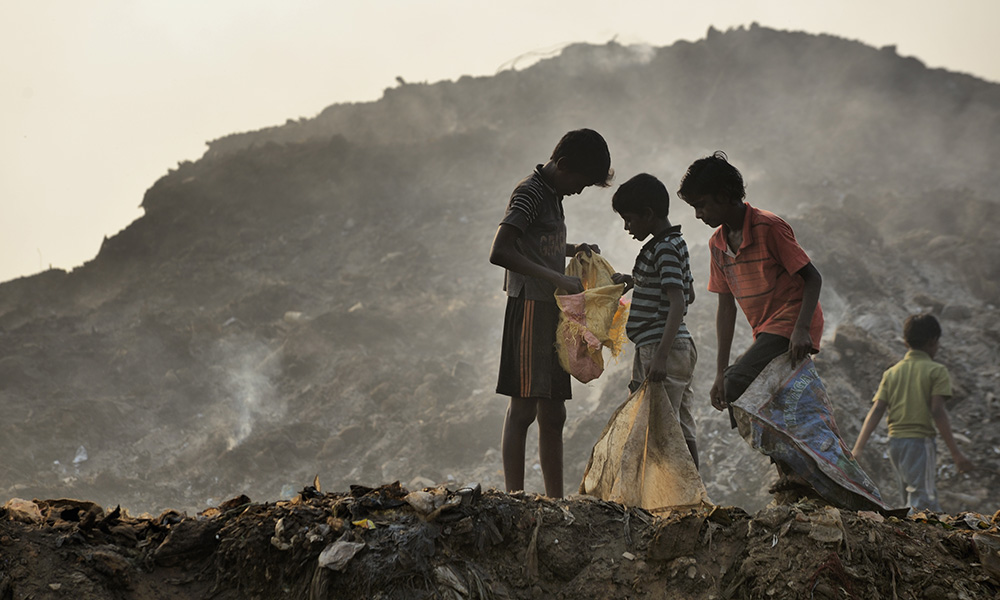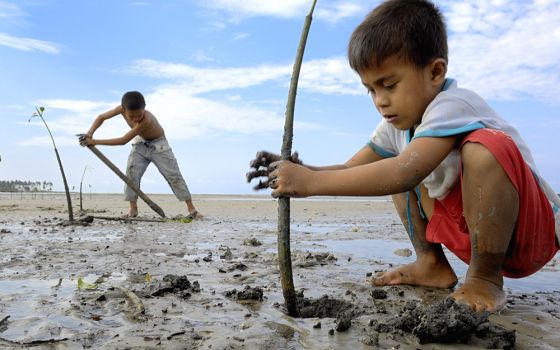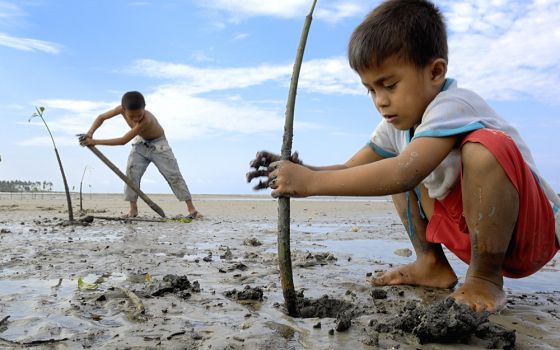
The author met these boys one night at a church-run shelter in Chennai, India. The next morning, they took him to where they spend their days — the city's dump, with its mountains of smoking garbage. (Paul Jeffrey)
Editor's note: This Season of Creation, join award-winning photographer Paul Jeffrey for "Lens on Creation" as he examines the world through the lens of his camera and his faith. Sign up here to receive Jeffrey's reflections in your inbox every Monday, Wednesday and Friday from Aug. 31 to Oct. 4.
I met these boys one night at a church-run shelter in Chennai, India. The next morning, they took me to where they spend their days — the city's dump, with its mountains of smoking garbage. Journalists aren't allowed there, so the boys teamed up to smuggle me in.
Such cooperation is part of their life as scavengers. As they dig through the refuse, they excitedly share news of promising leads on scrap metal, which fetches a higher price, or even food that's still edible. They often dig side by side, cooperating as they churn through waste.
In many parts of the world, it's the poor who sort through our trash, even trash we've exported to other continents. As they search for sustenance in our excess, they are often invisible to us and — like our refuse — disposable.
In his criticism of a spreading "throwaway culture," Pope Francis wrote in Evangelii Gaudium, "Human beings are themselves considered consumer goods to be used and then discarded."
In the United States, we generate 4.4 pounds of municipal solid waste per person per day. Our planet groans under the weight of what "Laudato Si', on Care for Our Common Home" terms our "disordered desire to consume more than what is really necessary." And our spiritual lives groan under the weight of our selfishness.
What would a Jubilee Year look like for these children in the dump? What do they dream of beyond the mountains of garbage? How can we live our lives so that they, too, may also live? To heal the planet, we must reduce our consumption to levels that are sustainable for everyone.
For reflection and action:
In a notebook, keep track of everything your household throws out for a week. Make a note of what kind of waste it is and weigh it, if you have a scale. How much of your week's waste consists of food scraps? Plastic? Paper? Other items? How could you reduce it? Keep track for the rest of the Season of Creation. Are you able to reduce your household waste?
[Paul Jeffrey is a founder of Life on Earth Pictures and lives in Oregon. You can follow him on Instagram.]
Advertisement






